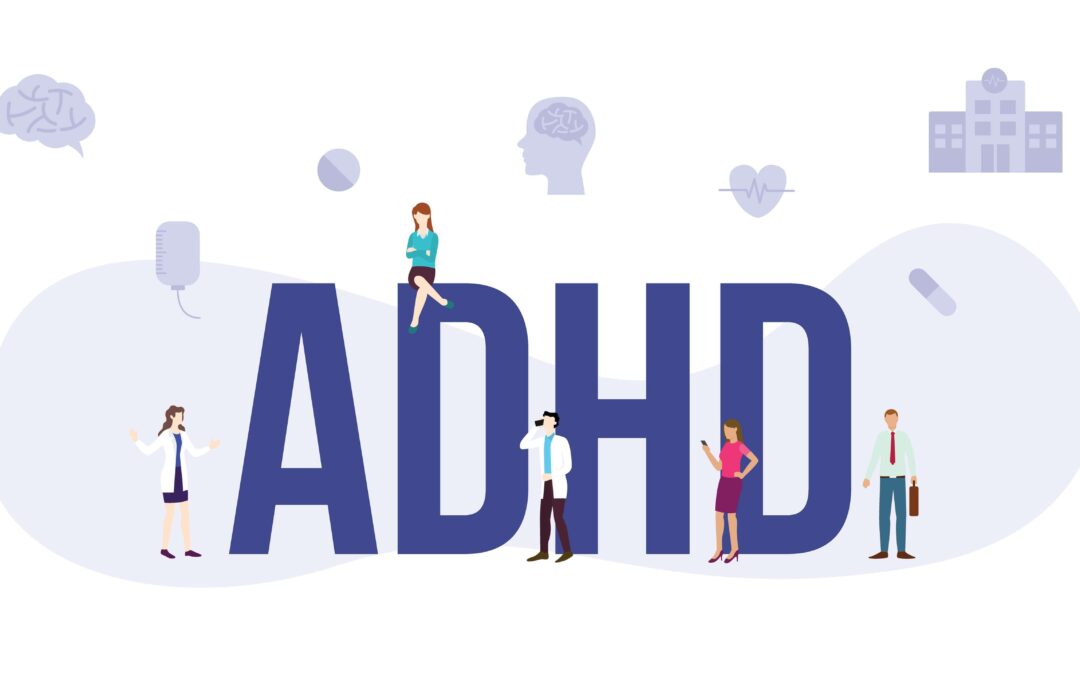Mental health is a relative topic in this country. According to government statistics, one in six adults lives with a form of mental illness. Many wonder how it also affects life insurance coverage if you have any mental disorders.
Although all aspects of every industry strive to be inclusive, affordable life insurance coverage is often difficult to attain. Clients with mental health disorders fall into the high-risk category.
However, things are changing. Alia Quotes provides all the necessary tools for insurance agents to provide coverage, including life insurance for ADHD and anxiety disorders.
Here’s what you need to know.
Are Mental Health Disorder Clients Insurable?
This question is a valid concern for families affected by a mental health disorder. Mental health doesn’t just affect the patient. Many life insurance companies developed specific policies to address this need.
Insurance companies are required to follow the regulations set out by the State Insurance Commissioners (NAIC). These measures are in place to protect all insurance consumers.
Mental health clients experience unique health concerns that deserve individual assessment and treatment.
However, people who cope with manageable mental disorders like depression and anxiety can purchase life insurance policies. Since insurance companies have different policy options, it’s best to investigate the details of these policies.
Applying for Life Insurance with a Mental Health Disorder
Insurance underwriters use a system that tabulates a client’s historical data. This information, along with projected risk factors and experience, allows underwriters to make an informed decision.
Agents still need to ask tactful questions to help them assess each situation. They might ask you questions like these:
- What symptoms did you initially experience?
- How have the symptoms developed, and how many do you cope with now?
- How many mood disorder episodes did you experience?
- Did you respond well to the first-line prescriptions medications?
- Are you confident in the current treatment method, or did you need to adjust the dosage?
- Are you compliant with all treatment aspects?
- Explain your favorable and unfavorable experiences.
- Have you been hospitalized for psychiatric episodes? If yes, detail the experiences as voluntary or involuntary, and did this happen as an in or outpatient?
- Do you have a history of ECT (electroconvulsive therapy) or TMS (transcranial magnetic stimulation), attempted suicide, or suicidal ideation?
- Have you undergone investigational treatments like Ketamine or other neuromodulation?
Answering these questions truthfully will allow your insurance agent to suggest the best life insurance policy when you have disorders.

Life Insurance Anxiety Disorder Coverage
An insurance underwriter evaluates applicants on several risk factors before approving or declining a policy.
Aside from asking the above questions, they formulate a profile based on these circumstances:
- Clients history of mood disorders
- Profile regarding substance abuse
- Treatment history
- The severity and how it impacts everyday life
Underwriters Assess These Key Factors Before Administering Coverage
- Clients with mild to moderate anxiety that is managed and treated most likely get approved
- Clients who experience severe forms of anxiety require an evaluation on an individual basis for coverage.
- History of other associated mood disorders and substance abuse limits access to coverage. Declined applications are possible depending on the circumstances.
Life Insurance and ADHD Coverage (Attention Deficit Hyperactivity Disorder)
Although ADHD is associated with children, for 50-86% of cases, the condition doesn’t vanish in adulthood. Researching life insurance and ADHD policies isn’t daunting with the right agent.
Underwriters assess each applicant based on the following:
- Applicant’s age
- Treatment history
- Impact and severity that affects daily activities
- Declared history of substance abuse
Underwriters Review These Particulars Before Granting a Suitable Policy
- Case of mild to severe ADHD might qualify if the client receives treatment and is responsive
- The rating of severity impacts the insurance coverage, but most often approved
Life Insurance Coverage for Bipolar Disorder
To ensure an accurate quote, it’s always best to allow a professional insurance agent to filter your particular situation.
Be prepared to answer the following:
- Discuss the severity and how it impacts everyday life
- Treatment history and outcome
- Detailed number of manic episodes and length
- Hospitalization details
- Outline of substance abuse
- Disclosure of suicide attempts
Underwriters Gage These Key Factors Before Administering Coverage
- Clients with mild to moderate symptoms of bipolar under effective and manageable treatment might qualify.
- History of hospitalizations and duration, disability, suicide attempts, substance abuse, and prolonged interference with daily activities often disqualify for coverage.
- Cases of severe bipolar don’t meet the criteria.
Life Insurance Coverage for Eating Disorders
Patients with eating disorders like anorexia nervosa and bulimia need to declare their history and recovery.
Insurance agents will delve into these facts:
- Duration of remission
- Report on the stability of the condition
- History of treatments
- Declared history of other mood disorders
Underwriters Evaluate These Parameters Before Accepting Coverage
- Length of remission status (minimum one year)
- Re-evaluation after 1 to 4 years without other symptoms to moderate rating
- Re-evaluation after four years to standard rating
- Re-evaluation after 10 years to preferred rating
Life Insurance for Depression Disorder
Sadly, at least 17. 3 million Americans suffer from depression, a common mental disorder. It is the predominant cause of disability throughout the world, according to WHO.
Insurance agents consider these factors:
- Impact and severity on daily life
- Treatment history and results
- Incidents of hospitalization and length of disability
- Current status of depression
- History of substance abuse
- Associated history of mood disorders
- History of suicide attempts
Underwriters Study These Essential Factors Before Providing Coverage
- Mild and moderate cases of depression can be eligible for coverage.
- Cases of severe depression are not eligible for coverage.
- Individual case history factors that impact coverage include response to treatment, relapses, hospitalization, periods of disability, and attempted suicides qualify for lesser coverage policies. An accumulation of these factors results in a decline in coverage.

How To Get Life Insurance for Mental Health Disorders
The best way to get answers to life insurance qualifications is to consult a reputable insurance company that understands the complexities of mental health policies.
Answering what seems like daunting questions becomes easier when you have access to an agency that knows how to ask the right questions without being invasive.
Ask yourself what type of coverage you’d like to apply for:
Simply fill out the online form or schedule a meeting with an expert advisor.
Final Thoughts on Life Insurance
Life insurance is a critical element of financial planning for millions of families. It shouldn’t have to be confusing, and a professional underwriter can guide you toward the right coverage for you and your family.
We are your best starting asset when searching for life insurance if you have hesitated before because of your disorder. You are not alone on this journey. Get in touch with a dedicated licensed professional here at ALIA Quotes today.
Also Read: What Is a Tertiary Beneficiary?
